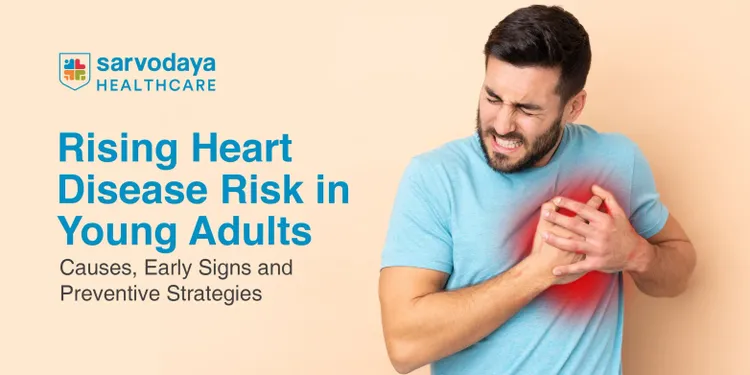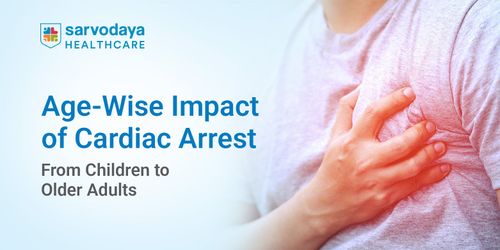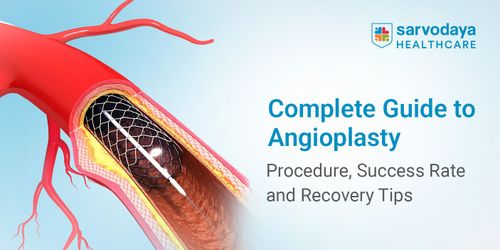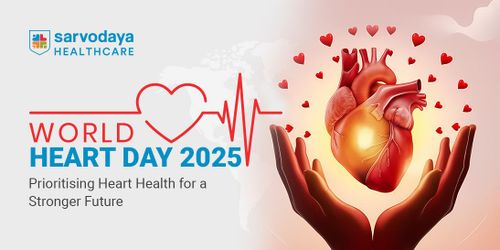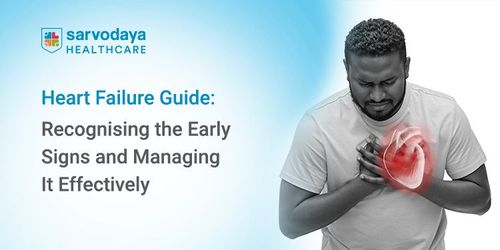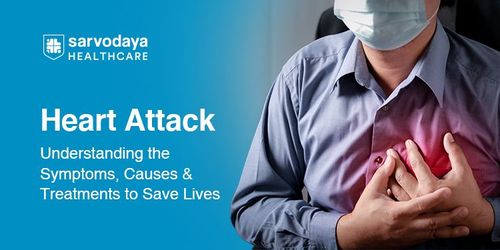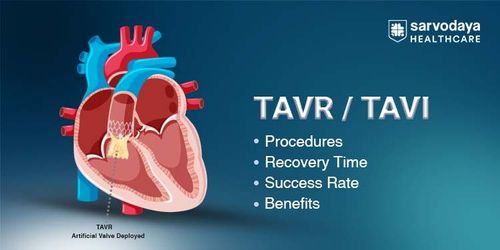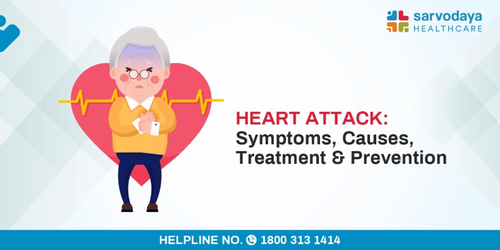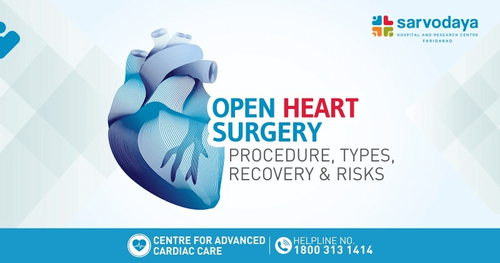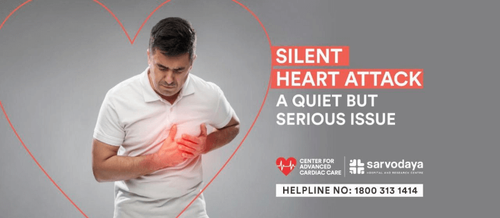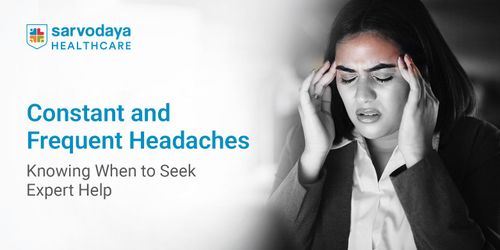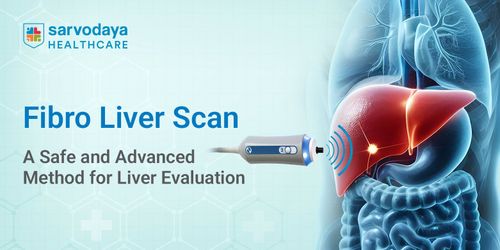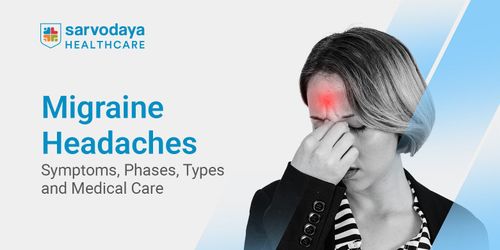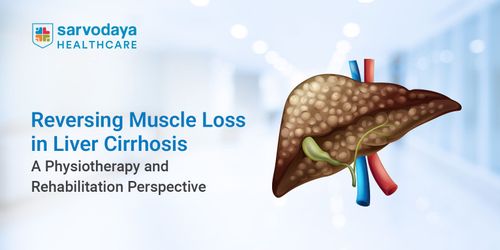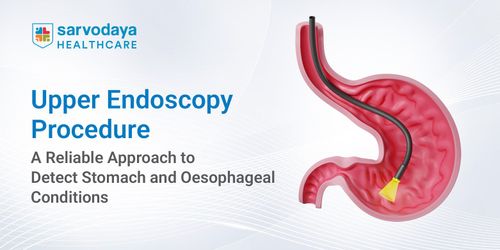For many years, heart disease was considered a concern limited to older people. But according to the latest statistics, the situation is more alarming, as the rate of heart disease in young adults is increasing all over the world, and India is no exception. This shift is happening due to the influence of eating habits, sedentary routines, stressful lifestyles, and the rising lifestyle-related illnesses.
In this blog, we explore why young individuals are increasingly becoming vulnerable to heart problems.
Understanding Heart Disease in Young Adults
Heart disease in young adults refers to a group of cardiovascular conditions that affect individuals below the age of 45 years. Although it was rare among youths in the past, recent research has revealed that an increasing number of young people in their 20s and 30s are being diagnosed with these conditions.
Here are some factors that may explain the shift:
- Increased consumption of processed and high-fat foods
- Lack of physical activity due to screen-heavy lifestyles
- Long-term exposure to mental stress
- Early onset of metabolic conditions like diabetes or hypertension
- Smoking, alcohol consumption and recreational drug use
Common Causes of Heart Disease in Young Adults
In most instances, heart disease in young adults develops silently, caused by modifiable lifestyle factors and ignored risk indicators.
Here are the major factors leading to the early onset of heart disease:
- Unhealthy Cholesterol Levels in Youth: High cholesterol may start building up in the arteries during the teenage years. Poor dietary habits, physical inactivity and obesity are major causes for high cholesterol levels in youth.
- Smoking and Alcohol: Tobacco use severely harms the blood vessels and promotes plaque formation. Excessive alcohol consumption can lead to high blood pressure and cardiomyopathy.
- Sedentary Lifestyle: Long hours of sitting, minimal exercise and dependence on gadgets reduce the need for physical activity, weakening cardiovascular function over time.
- Stress and Mental Health: Chronic anxiety and untreated depression can cause high blood pressure and irregular heart rhythms. Understanding how stress affects your heart is crucial to preventing long-term damage.
Early Signs of Heart Attack in Young Adults
Contrary to popular belief, heart attacks do not always occur with sudden, dramatic chest pain. Most young adults experience subtler symptoms that are often ignored or mistaken for something less serious.
Beware of the following early symptoms of heart attack in young adults:
- Persistent Chest Pain or Discomfort: Feeling pressure, squeezing, or fullness in the chest, which may spread to arms, neck, or jaw.
- Shortness of Breath: Difficulty breathing even without exertion is a warning sign.
- Unexplained Fatigue: A common yet often overlooked symptom, it may indicate a reduced blood supply to the heart.
- Nausea, Sweating or Light-headedness: Especially in women, these symptoms can occur without chest pain.
- Palpitations or Irregular Heartbeats: Changes in heartbeat that feel abnormal or uncomfortable may be an early red flag.
Read More- Heart Attack: Understanding the Symptoms, Causes & Treatments to Save Lives
Impact of Lifestyle and Stress on Heart Health
Understanding how stress affects your heart is important, as many young adults experience chronic stress due to their academic load, work or personal problems. This emotional strain can trigger a chain reaction of physiological changes that strain the heart.
Here is how lifestyle and stress affect heart health:
- Elevated Cortisol Levels: The increase in cortisol due to stress increases the blood pressure and cholesterol, both linked to heart disease.
- Disrupted Sleeping Patterns: Irregular or poor sleeping patterns aggravate inflammation levels in the body, further straining the cardiovascular system.
- Emotional Eating and Weight Gain: Stress can lead to comfort eating, resulting in obesity and poor cholesterol levels in youth.
- Increased Smoking and Alcohol Use: Many turn to substances to cope with stress, which damages the heart and blood vessels over time.
- Neglected Mental Health: Anxiety and depression are often left untreated. They are strongly associated with irregular heartbeat and an increased risk of cardiac arrest.
Preventive Measures and Lifestyle Tips
Prevention remains the best line of defence against heart disease in young adults. By making strategic and informed lifestyle choices, individuals can significantly decrease their risk of developing cardiac conditions.
Here are some proven strategies to protect the heart:
- Adopt a Heart-Healthy Diet: Focus on whole grains, vegetables, fruits, lean proteins and healthy fats. Avoid processed food, sugary beverages and trans fats.
- Exercise Regularly: Aim for at least 30 minutes of moderate physical activity on most days. It enhances the blood flow and helps control cholesterol levels in youth.
- Quit Smoking and Limit Alcohol: These habits significantly raise the risk of heart disease, even in younger people.
- Practice Stress Management: Techniques like meditation, yoga, breathing exercises, or even therapy can help reduce the harmful effects of stress.
- Maintain a Healthy Weight: Being overweight is a major contributor to heart disease. Maintaining a healthy BMI is thus essential.
- Stay Informed and Proactive: Schedule regular consultations with a heart specialist in Faridabad to assess your risk.
Importance of Expert Cardiac Consultation
When it comes to preventing or managing heart disease in young adults, professional medical advice is non-negotiable.
Here is why seeking timely professional care matters:
- Accurate Diagnosis: A cardiac specialist can evaluate your symptoms and medical history and conduct relevant tests to identify risks early.
- Personalised Advice: Customised lifestyle, diet and medication plans are provided based on your health profile.
- Monitoring and Follow-up: Regular check-ups ensure any changes in cardiovascular health are addressed before they escalate.
- Advanced Interventions: If needed, early access to non-invasive diagnostics or treatments can reduce long-term complications.
Conclusion
The steady rise of heart disease in young adults is a matter of concern, but it is not without solutions. Through awareness, healthy lifestyle changes, and proactive healthcare, young individuals can not only manage their risks but also reclaim their long-term heart health.
If you or a loved one is experiencing symptoms or has a family history of heart problems, it is essential to consult an experienced cardiologist. At Sarvodaya Hospital, Faridabad, the most reputed heart hospital in Faridabad, Delhi NCR, a team of renowned heart specialists offers personalised treatment plans and compassionate care, using advanced diagnostic equipment and the latest researched treatments.
Book a preventive consultation today to help detect silent warning signs for effective, early treatment. Don’t wait for a crisis. Your heart deserves attention today.


